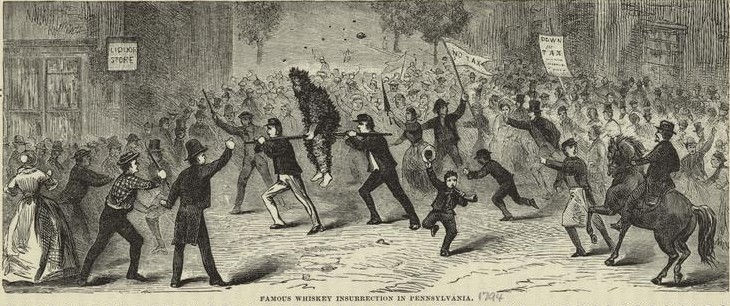American Politics
- Ivan Fenn
- Jun 10, 2025
- 4 min read
The institutions that first defined America as a whole - the thirteen colonies, the Constitution, and the whole apparatus of federal republicanism - came into being through a real instance of voluntary association and consensus. This means that the social contract, and in particular the idea of a society based on consent as reflected in the freedom to dissent, was at least partially realized in our history. We take this fact for granted, but it is almost unique to us. In the European tradition, the social contract is merely a theoretical tool, a postulate of reason not tied to any known historical event. The idea of the French Revolution was that French society had to be corrected to better reflect a prior social contract; the French Revolution did not invent France as the American Revolution invented America.

Historically, then, this principle of voluntary association is the kernel of our political existence, inseparable from the American identity. Because of this, it continues to exist in our political forms despite being somewhat irrelevant in actual practice. One manifestation of this is the balanced independence that pervades the organization of our government. The separation of powers exists not only within but between each of its three levels. State government is limited by federal government and local government by state government, but they are not unilateral extensions of one another. Each has, in varying degrees, an independent political existence. Local initiative is feasible, not as a form of delegated authority but as an authority unto itself balanced and limited by other authorities. In the UK, bylaws made by town councils are a form of delegated legislation and can only touch on areas not covered by existing laws. Their authority derives from Parliament as the lawmaking power. In the US, on the other hand, many states (including Massachusetts) uphold “home rule”: the municipality which creates a bylaw is the legislating entity, and the approval of the state legislature is not required so long as state and federal laws are not broken. Local law, though not sovereign, lives within its own domain. Towns do not exist simply because the state allows them to exist, as is the case in the UK and elsewhere. There is, I believe, a basic assertion of right in municipal incorporation. This distinction, though subtle, highlights the respect that is given voluntary association by American law, being the historical basis of America’s existence and therefore the core of American legitimacy itself. A municipality is simply a group of people choosing, of their own volition, to form a political relationship with one another; this is the distinctly American “right.”
My aim here is not to passively glorify America. Rather, I am making a practical observation about the most effective political channel that is available to Americans. Elections, and representation generally, have proven to be a very ineffectual mode of political participation. In our next presidential election, we will be made to choose between a convicted felon and a party hack stand-in whose winning trait is that she is not decrepit. That is ridiculous. It points either to the complete dysfunctionality of representative democracy, or the utter buffoonery of civil society as a whole. Optimistically, I would assume the former to be closer to the truth. Thus, if we desire some measure of power and self-determination, it cannot be through voting. Voting is unsatisfying because it is abstract and weak, and never ceases to be so in our own experience. Instead of making us all equally powerful, it makes us all equally powerless; thin, like butter scraped over too much bread. What has to be recognized is that you as an individual can only find actual political expression to the degree that you can make your ideas attractive to the people around you while continuing to believe in their validity. If a group of people, even a small town, consent to participate in something that is not clearly illegal under state or federal law, there is a good chance it will be allowed. Considering that this type of association and consensus is America’s inalienable point of origin, it is difficult for the state to justify suppressing it. To oppose the exercise of this freedom is to cease being American in the most basic sense.
A point of clarification. The type of political action I am describing is not necessarily initiated or organized by the group, though I have nothing against group politics. Instead, it may be presented by the individual and consented to by the group. The distinction is that this consent must be active, not passive. Passive consent consists merely in the lack of dissent; a decision is made by an established authority, and because there is no show of resistance, the tacit approval of the public is presumed. Active consent, on the other hand, is voluntary and motivated. It requires a real reaction, a positive response. Strictly speaking, this is the only sense in which “consent” ought to be understood. The term stems from com (“with”) and sentio (“to feel,” “to think,” “to desire,” or “to go”); one who does not feel or desire something, who does not actively respond to it, cannot be said to consent to that thing. In this sense, the passive consent of the public is not consent at all; it is simply those in power calling all the shots. Voluntary association presents an opportunity to escape this limbo of political dormancy. It is the only way that those not already established in the halls of power may have political influence, by virtue of the unique dependency that American legitimacy has upon it.
